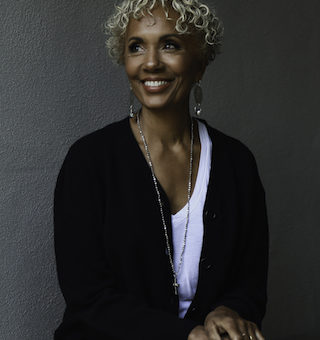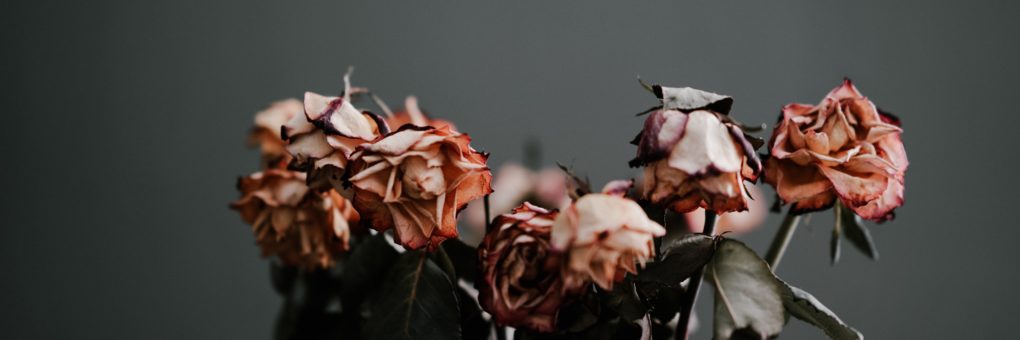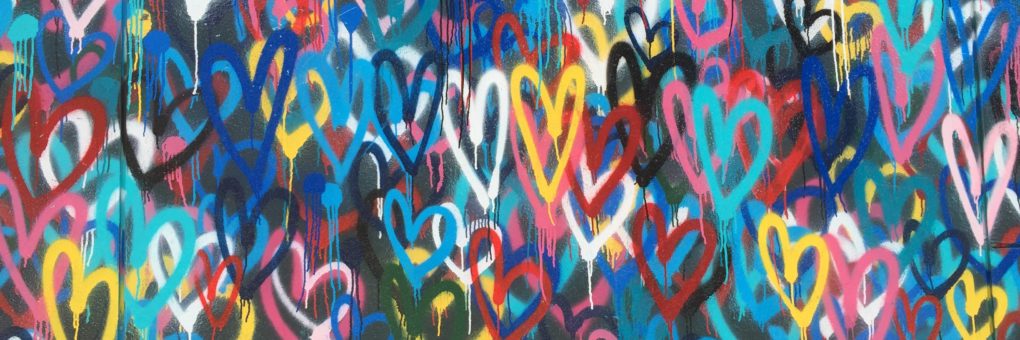This is my third Gemstones piece, a blog post featuring people who lead with an open heart and work to uplift others. I’m honored to have the chance to introduce you to the work of Deborah Santana
Tell me about what you’ve been up to since we last saw one another?
I’ve been through some huge changes. In June 2018 I rented an apartment in Los Angeles to be closer to my newborn grandson and, after being there on my own for two and a half months, I awakened to the realization I was happy on my own. I ended my marriage and began exploring Los Angeles more than I had in the past. I spent time looking at neighborhoods close to my son and his family and eventually bought a home.
The sale of my house in Marin closed the same day as the LA house, which happened to be my father’s birthday. It was divine order. My life embraced a new path and it felt that I was being carried along without having to expend effort. I moved into my LA house last June (2019) and continued my philanthropic work and began a new venture, Temple Tree Sanctuary.
Temple Tree. Tell me about that.
Last New Year’s, I went to Maui and stayed at a retreat center with no TV. I walked a gorgeous, outdoor labyrinth, following a stone path to the center. In the warm breeze, I sought guidance for my future. I was filled with a calming energy and envisioned being in that kind of healing environment to continue my life work.
Since 1998, I have provided funds for women, children, and girls in the areas of education programs, domestic violence prevention groups, art services, my beloved Daraja Academy in Kenya, and more through my Do A Little Foundation, and before that, Milagro. On my labyrinth walk, I felt that G-D and Spirit were telling me I could create something new — a place where people can come and have a healing experience. I began a journey to create Temple Tree Sanctuary. I have been invigorated by the prospect of housing a center with healing practitioners who share their gifts.
Temple Tree Sanctuary will to provide wellness experiences in a peaceful, uplifting environment. Our core beliefs are that humans can commit to work for the highest welfare of all beings. We can promote the unity and similarities in us all through the practice of compassion and love with a genuine sense of sisterhood and brotherhood.
The Sanctuary will offer reiki, meditation, stretching, fitness training, NLP, sound baths, cooking classes, chanting, writing workshops, and teachings in indigenous wisdom. It is a place for seekers to gather to heal our world through individual and group practice.
My main focus right now is building my Wellness/Healing Center Temple Tree Sanctuary, a nonresidential healing center.
Tell me about your experience of living in Marin versus Los Angeles.
The first thing that happened when I was in Los Angeles for the first two months was feeling the impact of the traffic and pollution. In Marin I lived in an idyllic house where deer and racoons were my neighbors, and I lived a rather monastic life, let’s say. When I moved to Los Angeles, I moved to Studio City. It was so much more crowded, and it took time for me to adjust.
What I love about being here is there is so much diversity and there are so many museums and the landscape is larger. I’m thriving here: the organic food, the restaurants, the little villages of people. I love not crossing bridges anymore. If we are lucky and have the privilege to follow our heart, we find the right place for the moment. I miss my friends from Northern California and I miss the events we had for All the Women in My Family Sing, but I know quite a few people in LA and have sweet connections here.
In a virtual event I listened to earlier in the week you said, “…[t]hinking things I won’t let myself think.” Can you say more about what that means?
In this time of the pandemic of racism where we are all having to live with the reality of what people of color have had to deal with for 400 years, my wounds from racism have been opened. Growing up with a white mother and black father I knew I could be assaulted physically or verbally for how I looked. San Francisco was relatively liberal, but knowing that people were looking at me because of my skin color and hearing my parents’ stories: my mother being spit on when she was with my father; my father being shot at in the stomach by his landlord because he had a white woman in his apartment — that history lives inside me. I’ve worked through various healing modalities to get those horrible wounds out of myself (e.g., neurolinguistic programming/NLP, therapy, Reiki, Ho’oponopono, etc.).
I want to love everyone. I don’t want to look at a white man who looks at me harshly and think he’s going to go home and get a gun and shoot me. I want to get those thoughts out of me. I don’t want to make any assumptions about a person’s character before I know them, as Don Miguel Luis writes in his book, The Four Agreements. But when I see the faces of the four men who murdered George Floyd and I see men on the streets who look like them, I think they are going to kill me.
I was listening to an interview today on KPFA from June Jordan where she’s talking about Dr. King, the riots in Chicago, how Black people were being murdered and assaulted by police — the same things we are talking about today and the millieu in which I grew up. Those memories live inside in black people’s bodies. I don’t want my mind to dwell in that place because my spiritual purpose is to live in the present. When I saw non-black allies go out into the streets getting rubber bullets shot at them, surviving tear gas, I was so grateful. There can be no progress without the participation of every person who can empathize and foment change.
There is a wonderful book, Stand Your Ground: Black Bodies and the Justice of God written by Kelly Douglas Brown, a black woman. She writes about how white supremacy has been perpetrated and how the Stand Your Ground defense was used when Trayvon Martin was killed. White people have been taught these negative myths about people of color. They were taught that stealing land from indigenous people and owning black people is acceptable. There has been no reckoning here like there has been in Germany about the Holocaust. In Germany everyone has to study what Hitler did. If not, people continue to learn the lies.
There are so many important things being done by people of color and our book All the Women in My Family Sing was influential because so many people have never read narratives written by people of color.
During the virtual event, I also learned that you are a Reiki practitioner. Tell me about how Reiki impacts your life?
I’ve had Reike done on me for thirteen years. It is a healing energetic treatment that originated in Japan. It is made up of two words: God’s wisdom and chi – the life force energy. Practitioners become receptors of spiritually guided life force energy. I started doing research to find out what the practice was about because it left my body feeling transformed. I studied level one. It’s very simple to learn. Reiki acts in harmony with others. Reiki practitioners want to be pure vessels for what Reiki wants to give to others.
Dr. Mikao Usui is believed to have started Reiki. But there were four other styles of Reiki healing practiced in Japan before him. The secret is inviting happiness and healing into your body and leaving anger and worry outside. You practice on yourself for the first thirty days and then you learn the symbols. I have also completed the level two course.
When you practice, your hands get really hot because of the energy flowing through you. I love when my hands become hot and tingly. It’s such a funny thing. Sometimes practitioners receive images or messages when they put their hands on your body. But you also have your own experiences. I’m connected to healing energy – I can just feel warmth or light and that gives me clarity. The more we use the skills, the more in tune we become.
You asked me if I’ve ever heard of Peace Pilgrim. No, I haven’t. Please tell me about it.
I started reading Peace Pilgrim when my children were little. She was a daring lady who had lived a normal life until, in 1953, she felt she was called to begin a pilgrimage for peace in the world. She made a shirt that said Peace Pilgrim and she walked 25,000 miles for peace – a penniless pilgrim. Her principles are:
“This is the way of peace: Overcome evil with good, falsehood with truth, hatred with love.”
I’ve attended many churches, have had a guru, and always sought spiritual communities where I could thrive, yet I always come back to her. She walked out of her life. I don’t think I could do that, but I want to live by her principles in every way I can.
As I was thinking about our interview, the notion of beauty kept coming to me. Tell me about the role that beauty has played in your life?
It is an interesting question, now that I’m older. Our family was beautiful. My dad was stunningly handsome. My mom was movie-star beautiful. My sister and I drew attention because of our looks. It’s such a false way to live in the world. The more people judge you outwardly in a good way, the more you judge yourself. I’ve met many women who are free because they are not measuring up to someone else’s expectations. What people are attracted to is glamour. Glamour is temporal and fleeting and human-made. It has a very low energetic vibration. Beauty comes from the inside.


